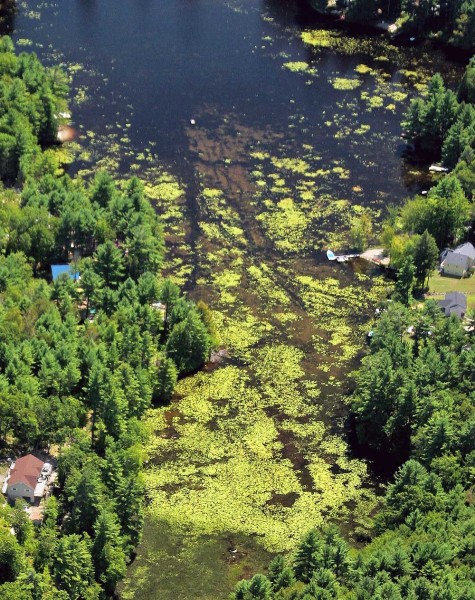Rising Concern Over Milfoil Prompts Lake to Pay for a Lake Host Program

The NH DES has identified 14 exotic aquatic plants that are prohibited in New Hampshire due to their abilities to choke surface waters, harm native vegetation and wildlife, impact recreation, and lower property values.
Thankfully, Lake Winona has not been infiltrated by an exotic species. But heightened alarm by owners over variable milfoil has prompted the Lake Winona Improvement Association to take action and pay to put a Lake Host program in place. Nearby, Lake Waukewan, Lake Winnipesaukee, Lake Opechee, and Squam Lake have all been infected with variable milfoil.
Lake Host Program to Start on Lake Winona
The Lake Host program will put a volunteer or paid host at our boat launch every weekend during the summer to conduct courtesy boat inspections. Such programs are in place at boat ramps in Gilford, Meredith, Wolfeboro, Tuftonboro, and Alton. The Association is also investigating larger signs at the boat ramp, and possibly a sign at the underpass as kayakers leave the Snake River and enter into Lake Winona alerting them to check their rafts as milfoil is in Lake Waukewan.
While a Lake Host program is not a 100% guarantee that Lake Winona will stay free of exotics, it is a huge step to help prevent it. Volunteers will be needed for weekend shifts next summer, starting Memorial Day weekend and going through Labor Day. Donations from lake owners are being requested to help pay the estimated $4,500 price tag it will cost to put paid hosts on duty during times when volunteers are not available. The LWIA has submitted paperwork in hopes of getting some grant money to offset the cost and will seek some assistance, is possible, from New Hampton and Center Harbor.
Donations can be sent to:
Jay Buckley – LWIA Treasurer
P.O. Box 87
Plymouth, NH 03264
Why the Concern Over Milfoil?
Because of variable milfoil’s rapid reproductive cycle and the fact that there is not an abundance of natural predators, this invasive species can spread rapidly through a waterbody, tending to make it’s home in coves and bays. It can displace beneficial native vegetation and quickly become a monoculture. It can negatively impact native species, recreation and even property values around infected lakes.